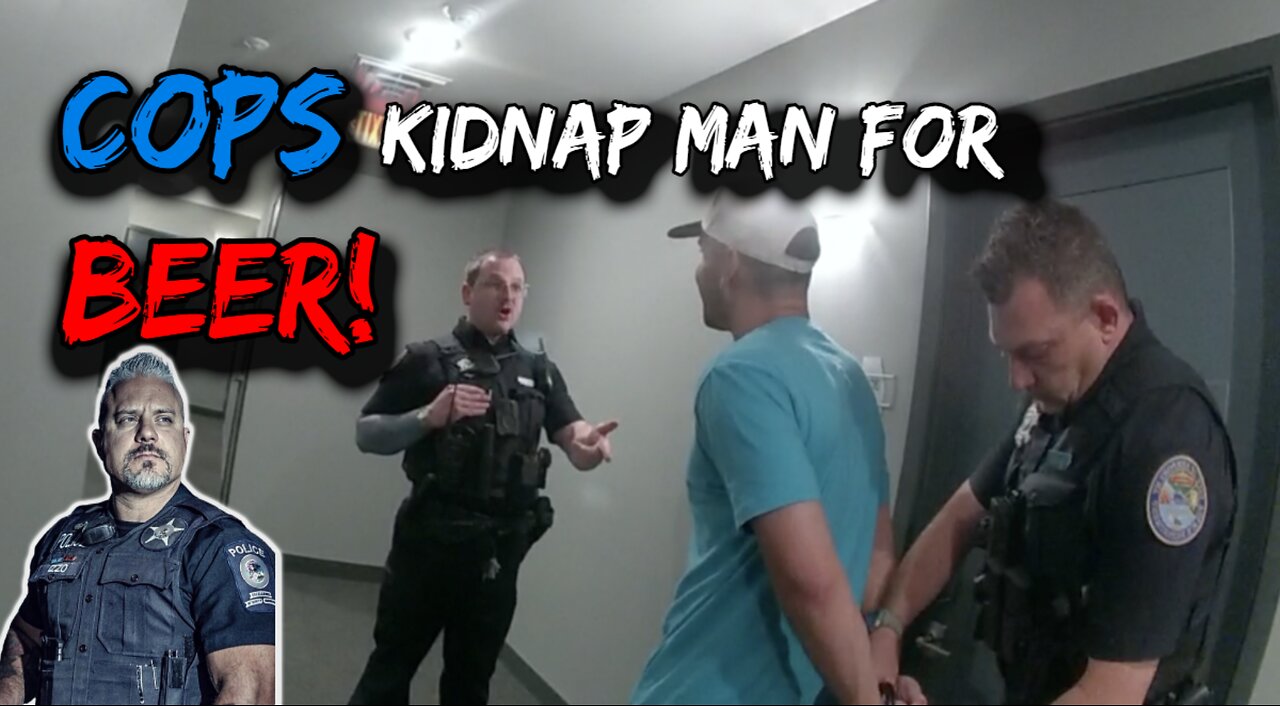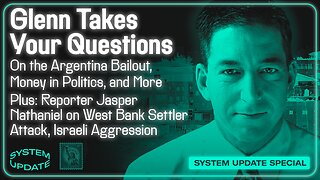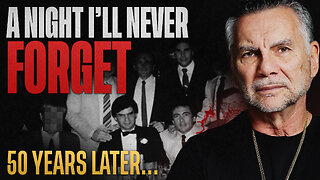Premium Only Content

Newport Police Break In, Unlawfully Restrain and Kidnap this Man!
Police accountability and civil rights are at a crossroads in America. In a recent viral incident, a man was unlawfully restrained and arrested inside his own home for exercising his freedom of speech from a balcony. Cases like this raise persistent, urgent questions: What are your rights? What can you do if police overstep? Most importantly, what must change to protect citizens and uphold the Constitution?
A man, enjoying a beer at home, called out to officers from his apartment balcony. The officers, reportedly offended by his remarks, unlawfully used a retained key card (from when one officer previously lived in the building) to enter his private apartment. The man was arrested and charged with public intoxication—a charge later dropped. His lawsuit alleges clear violations of his First Amendment rights and protections against unlawful entry and excessive force.
Constitutional Rights: Free speech, especially from your own home, is a core American right.
Police Overreach: Entry without legal cause or warrant, and arrest for speech, erode public trust.
Systemic Issues: Without consequences, these abuses become normalized—hurting both citizens and the integrity of policing.
Know Your Rights
1. Freedom of Speech:
Offending an officer is not a crime. Lawful speech—even criticism—is protected by the First Amendment.
2. Unlawful Entry:
Police generally need a warrant to enter your home. Using old or unauthorized keys is illegal, just like any non-resident.
3. Unlawful Detainment and Arrest:
Arresting someone for speech—absent physical threat or public disturbance—violates constitutional protections.
Common Police Tactics to Watch For
Stretching “Obstruction” or “Disorderly Conduct”
Often used as a catch-all to justify otherwise baseless arrests.
Improper Use of Authority
Using knowledge of access codes/keys from previous residency or employment.
Intimidation by Numbers
Multiple officers arriving to pressure or escalate non-violent situations.
What Can You Do?
If You Are Confronted:
Remain Calm & Record:
Document the encounter (audio/video) lawfully if possible.
Ask for Legal Justification:
Calmly request basis for any entry or detainment.
Do Not Physically Resist:
(But verbally and legally challenge improper actions.)
After an Incident:
Seek Legal Advice:
Contact a lawyer or rights advocacy group.
Demand Bodycam Footage:
This is often pivotal in legal cases.
File a Formal Complaint:
With the departmental internal affairs and, if needed, federal authorities.
For Change:
Vote for Oversight:
Support public officials with meaningful police oversight policies.
Participate in Discussion:
Share experiences and insights in public forums, such as comment sections and community meetings.
Push for Transparency:
Insist on independent investigations and public reporting of police actions.
The Path Forward
Changing entrenched cultures in law enforcement requires a combination of:
Stronger legal consequences for violations,
Better, ongoing training,
Greater community involvement and oversight, and
Persistent public attention and media coverage.
The conversation must remain active if we want to see lasting reforms and restored trust between the public and police.
As cases like these demonstrate, police accountability is not an abstract issue—it affects neighbors, families, and communities everywhere. By staying informed and engaged, you can help ensure everyone's rights are recognized and protected.
⚠️ Support the channel! https://www.paypal.com/paypalme/coptalklive
🚨 Order my new book from Amazon here: https://www.amazon.com/Before-Badge-Everything-Need-Become-ebook/dp/B07ZQRGCTK/ref=cm_cr_arp_d_product_top?ie=UTF8
⚡️ Follow me on Instagram! https://www.instagram.com/dominickizzo/
🔊 Send your messages here! [email protected]
Streaming LIVE Wednesday nights at 9p est
Dominick Izzo is a former police officer, author, and conservative commentator who gained some prominence through his outspoken views on law enforcement, politics, and social issues. He has often addressed police corruption, government overreach, and issues related to personal liberties. Izzo is known for his candid and sometimes controversial opinions, which he shares through social media platforms, podcasts, and other media appearances.
Izzo also ran for public office, including a campaign for Sheriff in Cook County, Illinois. His career in law enforcement and his experience as a whistleblower on police misconduct have shaped much of his advocacy. He positions himself as an advocate for constitutional rights and often criticizes both law enforcement agencies and politicians when he believes they violate the principles of justice or civil liberties.
In addition to his law enforcement background, Izzo is a public speaker and has written about his experiences in policing and his views on societal issues. His content often appeals to a conservative audience, particularly those concerned with government transparency and accountability.
-
 18:05
18:05
Cop Talk LIVE
10 days agoDrunk Off-Duty Cop Draws Down on Teens — Beaufort County Sheriff’s Office Hit with Federal Lawsuit
65 -
 1:21:41
1:21:41
Glenn Greenwald
5 hours agoGlenn Takes Your Questions: On the Argentina Bailout, Money in Politics, and More | SYSTEM UPDATE #541
51.6K25 -
 LIVE
LIVE
Barry Cunningham
2 hours agoPRESIDENT TRUMP TO USE NUCLEAR OPTION? FOOD STAMPS END! | SHUTDOWN DAY 31
2,139 watching -
 1:06:56
1:06:56
BonginoReport
10 hours agoThe Battle Between Good & Evil w/ Demonologist Rick Hansen - Hayley Caronia (Ep.168)
77.8K24 -
 1:12:57
1:12:57
Kim Iversen
5 hours agoBill Gates Suddenly Says “Don’t Worry About Climate Change”?
65.2K38 -
 1:05:12
1:05:12
Michael Franzese
5 hours agoI Waited 50 Years to Tell You What Happened on Halloween 1975
29.3K9 -
 1:07:15
1:07:15
Candace Show Podcast
5 hours agoINFILTRATION: Charlie Kirk Was Being Tracked For Years. | Candace Ep 256
60.2K238 -
 LIVE
LIVE
Rallied
4 hours ago $1.32 earnedWarzone Solo Challenges then RedSec Domination
175 watching -
 2:34:30
2:34:30
Red Pill News
6 hours agoBoomerang Time - DOJ Investigating BLM Fraud on Red Pill News Live
44.7K10 -
 1:46:14
1:46:14
Roseanne Barr
7 hours ago“The Over Emotional Are Always Under Informed” | The Roseanne Barr Podcast #121
81.6K48